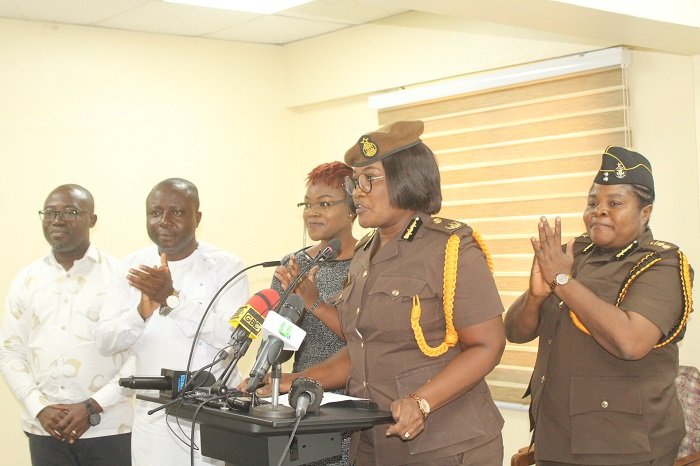Inmates of seven prisons in the country, who have mental health issues, will from December this year, start receiving psychosocial support and arts therapy under a new project launched in Accra, yesterday.
Psychosocial support refers to the emotional, social, and psychological help given to individuals to enhance their mental well-being, resilience, and coping skills, particularly during difficult situations or experiences.
Dubbed ‘Improving Access to Psychosocial Support and Arts in Prisons in Ghana,’ the beneficiary prisons of the project are the Nsawam Medium Security, Kumasi Central, Sunyani, Koforidua, Winneba, Awutu Senya Camp, and Ho Prisons.
The initiative by Crime Check Foundation (CCF), a non-governmental organisation, in collaboration with the Ghana Prisons Service (GPS) and the United Nations Office of Drug and Crime (UNODC), seeks to increase psychosocial support to prisoners through individual and group psychotherapy by psychologists and psychiatrists.
The launch was attended by representatives from the UNODC, Commission on Human Rights and Administrative Justice (CHRAJ), GPS, Judicial Service, CCF, Mental Health Authority and the Department of Psychology and Theatre Arts.
Speaking at the event, the Deputy Director-General of Administration of GPS, Mrs Patience Baffoe-Bonnie, said that psychosocial support played a critical role in addressing the mental health needs of inmates, many of whom have experienced traumatic events that contributed to their criminal behavior.
“By providing counseling and emotional support, we help inmates confront their past, heal, and develop healthier coping mechanisms. This support is crucial in reducing recidivism, as it equips inmates with the tools they need to manage stress,” she said.
On the arts therapy, Mrs Baffoe-Bonnie said that it would help inmates to develop new skills, and foster a sense of accomplishment and self-worth through visual arts, music, drama, or writing.
“It is in this context that the continuous provision of psychosocial support and arts therapy becomes not just beneficial, but essential,” she said.
The Deputy Director- General said that the Prisons Service was committed to collaborating with relevant stakeholders to ensure the mental well-being of prisoners and prison personnel was adequately provided.
On his part, the Executive Director of CCF, Mr Ibrahim Oppong Kwarteng, called on the government to improve on the budget allocation of the prisons service in order to improve on the living conditions of prisoners.
“We hope that government will listen to us and then complement efforts by the Prison Service to ensure that there is proper rehabilitation of inmates,” he said.
Mr Kwarteng also stressed the need for the government to pass the non-custodial bill into a law, adding that it would help change the behaviour of offenders by instilling in them a sense of moral obligation to their communities.
BY AGNES OWUSU

